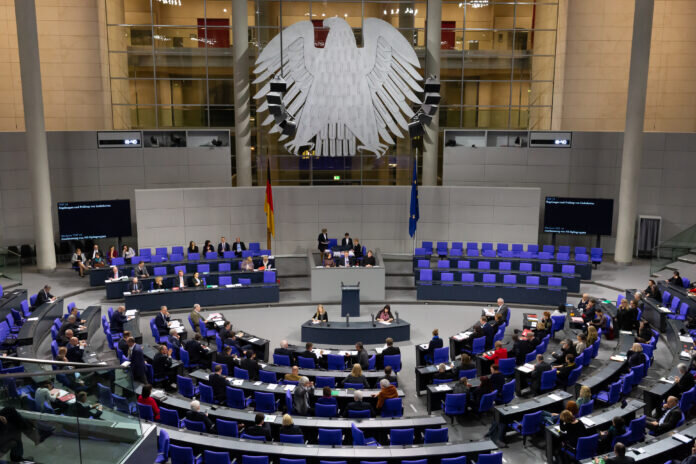Two key German associations are calling on the incoming government coalition to urgently establish a program that will promote industrial hemp as a strategy to capture CO2 from the atmosphere while also fueling economic development.
The Cannabis Industry Association (BvCW) and the Federal Association for Sustainability (BVNG) urged the new government to set up a “100-Day Program” to promote the hemp sector.
‘Tap potential quickly’
“Climate and economic policy potential must be tapped quickly,” the groups said in a statement issued today, suggesting the crop represents not only a tool against climate change but also business opportunities around a diverse array of applications. Thriving hemp supply chains can also create new jobs and strengthen structural development in Germany’s rural areas, according to the associations.
“The focus on climate protection and sustainability in the coalition agreement is a groundbreaking signal that the next federal government could position Germany as the leading climate nation in Europe,” the associations said, suggesting Germany’s hemp industry can be the “core of sustainable bioeconomic value creation” in the context of the European Green Deal, the broader EU-wide strategy for addressing climate change.
The coalition of the Social Democrats (SPD), the Green Party (ALLIANCE 90), and the Free Democratic Party (FDP) – the so-called “traffic light coalition” because of the colors associated with the parties – agree that hemp should not be under the country’s drug laws, and support removing bureaucratic barriers that hurt the cannabis industry.
Role of ‘Greens’
With the environmentalist Green Party having a major seat at the table in the coalition, hemp stakeholders believe the government will be serious about a push for faster action against climate change. The Greens want to make Germany carbon neutral as quickly as possible through government spending and higher taxes that can support the development of hemp industry infrastructure, entrepreneurship and innovation.
“The associations welcome the fact that the coalition partners recognize the innovative strength of the bioeconomy as a driver for climate protection,” according to their statement.
But the two groups want the partners to go far, fast.
First, they say an existing resolution addressing hemp and the country’s narcotics act that was put together by the Greens and ALLIANCE 90 during the last legislative session should be put on the agenda immediately.
Regional development
“Structural funding of hemp priority regions are required,” the associations also said, calling on the government to immediately begin the process of establishing financial support for regional hemp growing and processing clusters while also funding research on applications for hemp in mechanical engineering, food, plastics, building materials and other industries.
The government can also help by easing access to venture capital and public contracts for hemp start-ups, the associations said.
‘A lot has been forgotten’
BvCW has already recommended a six-point plan to guide the cannabis sector. BVNG earlier called on the government to foster a “sustainable industrial evolution” that fully exploits hemp.
“In the past 70 to 80 years, when it comes to industrial hemp, a lot has been forgotten, little has been developed and even less researched,” said Martin Wittau, Vice President of the BVNG. “As a driver of innovation, industrial hemp needs this support not only in cultivation and product development, but also in vocational training.”
German hemp entrepreneur Daniel Kruse, President of the European Industrial Hemp Association (EIHA) and head of four leading hemp companies in Germany, said the country’s new legal framework for hemp should be coordinated closely with European partners. Kruse said EIHA backs the two German associations as they push for a competitive industrial hemp sector through policies that help minimize risks in cultivation, production and trade while leveling the playing field for German producers to compete in international markets.

